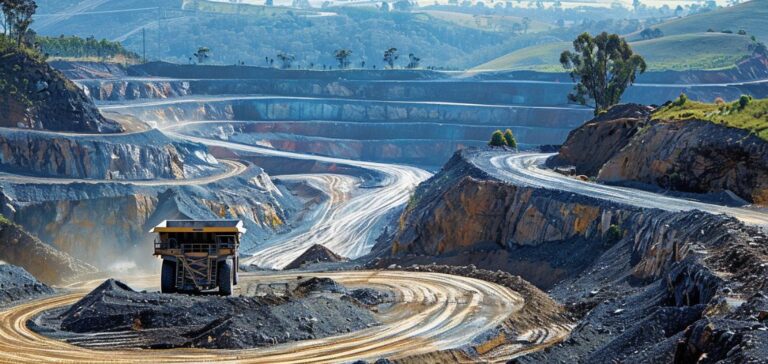Earth AI, a company specialising in predictive exploration of energy metals, has confirmed the discovery of six new mineralised prospects on exploration permits fully owned by the company in Australia. The findings include tungsten, molybdenum, tin and silver at the Kooranjie Project, located in the Central West of New South Wales, as well as cobalt, copper and gold at the Elkedra Project in the Northern Territory. These results validate the efficiency of the company’s artificial intelligence system in locating mineralisation across varied geological environments.
Surface exploration and mineralogical findings
At Kooranjie, a first-pass surface exploration across an area of approximately 512 km² yielded high-grade samples, with laboratory results confirming concentrations of up to 0.26% tungsten, 23.6 ppm silver, 0.052% molybdenum, and 0.044% tin. Mineralogical analysis also revealed the presence of topaz, fluorite, and elevated lithium levels—elements indicative of a complex polymetallic mineral system. The site lies within the Cobar Basin, known for tin deposits in the Wagga Tin Belt, and near the Gilmore Fault Zone, associated with several copper-gold-silver deposits.
Earth AI plans to launch a preliminary drilling programme in May 2025, supported by geological modelling and artificial intelligence tools. The campaign aims to define the extent of polymetallic targets and lay the foundation for advanced geological studies.
Mineralisation confirmation in the Northern Territory
At the Elkedra site, covering 400 km², three new prospects have been confirmed, with concentrations reaching up to 0.39% cobalt, 1.39% copper, and 0.685 g/t gold. Located about 240 km southwest of Tennant Creek, the area was identified through a territory-wide assessment using Earth AI’s predictive platform. The site includes Paleoproterozoic volcanic and sedimentary units overlain by Georgina Basin sediments, recognised for their potential in Tennant Creek-style deposits and sediment-hosted copper mineralisation.
Earth AI intends to develop a complete geological model to understand the deposit structure and design a drilling campaign to test its geological hypotheses.
Technology and deployment strategy
Earth AI’s technology platform, the Mineral Targeting Platform (MTP), is based on artificial intelligence trained on geophysical, remote sensing, and exploration datasets. It targets underexplored and data-poor environments, distinguishing it from methods that focus on resources near existing mines. The company complements its software with proprietary drilling technology designed to reduce logistical, environmental, and financial impacts during reconnaissance operations.
Founded in 2017, Earth AI primarily operates in New South Wales and maintains an office in Los Angeles. According to internal data, the company’s discovery success rate stands at 75%, with exploration timelines shortened fourfold and cost reductions reaching up to 75%.






















